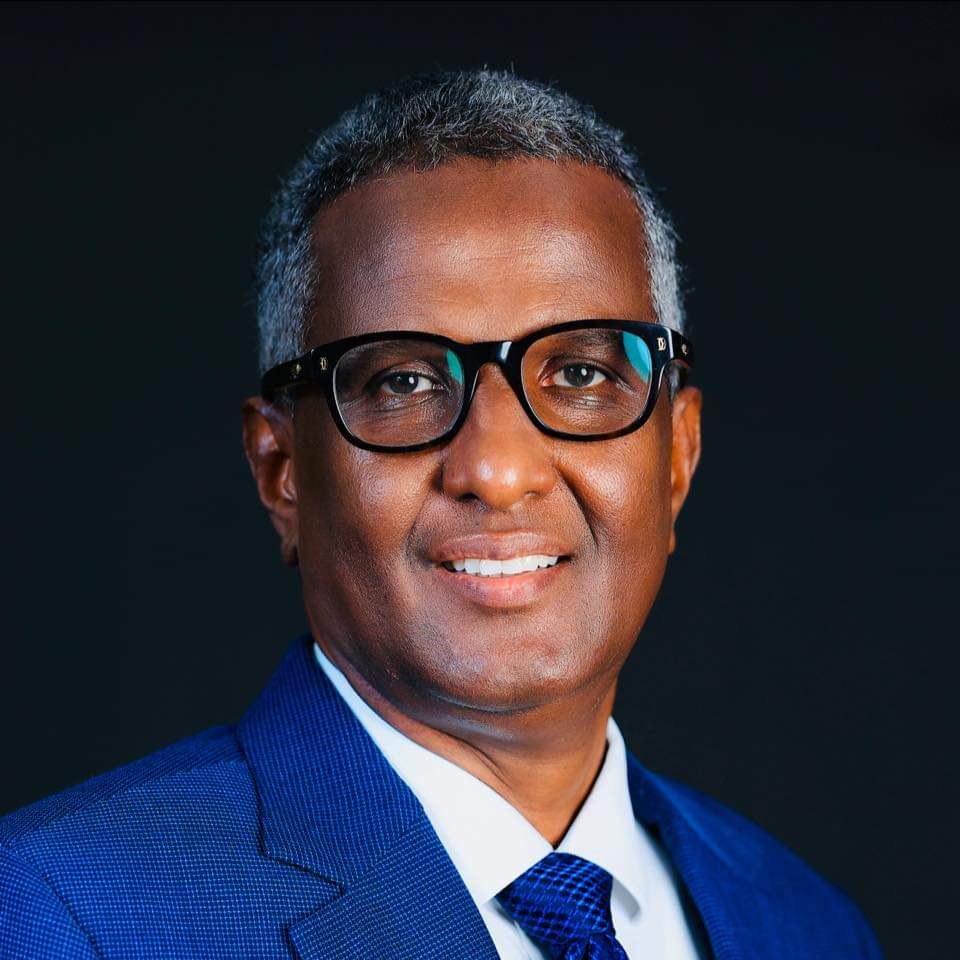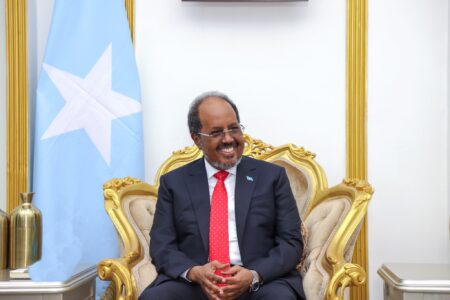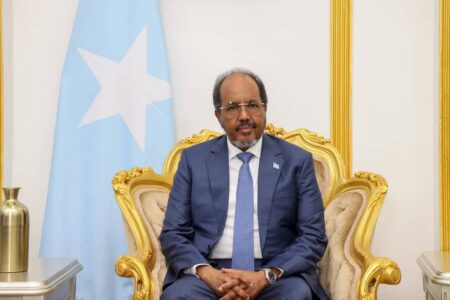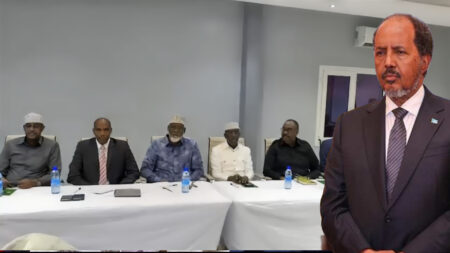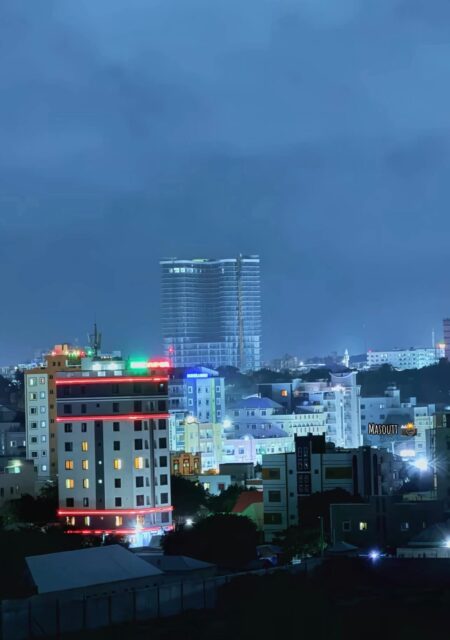By Qaran24 Political Analysis Desk
Mogadishu — a city that has long navigated the dualities of war and rebirth — now finds itself entrenched in a quiet yet perilous struggle. Beneath the government’s campaign of “security and development” lies a tangled web of politics, personal ambition, and competing interests that threaten to unravel the fragile peace the capital has achieved.
The government initiated the clearance of areas inhabited by individuals living in unplanned or congested zones — communities lacking proper resettlement plans or legal structures. These neighborhoods were once strongholds of Al-Shabaab, where insecurity reigned. Following the clearances, officials reported a nearly 90% improvement in security, leading to a momentary sense of optimism.
Mogadishu’s mayor, Mr. Mungaab, unveiled an urban restructuring plan aimed at organizing the city through proper zoning, mapped neighborhoods, and infrastructure redevelopment. For the first time in decades, Mogadishu appeared to have a roadmap toward becoming a modern, functioning capital.
Many business leaders responded positively, planning to establish housing, markets, and factories on the newly acquired lands, hoping to ignite an economic revival. In some instances, the government even granted legal recognition to long-term residents who had occupied public land for over 30 years, such as near the old tobacco and cigarette factory, as a humane gesture acknowledging their rights.
However, this progress did not come without hardship. Alongside those who were legalized, others faced forcible eviction. Some received compensation, while others did not. Their lands, once home to generations of families, were transferred to private investors under the guise of modernization.
The Political Sabotage
What began as a security reform gradually transformed into a political battleground. Behind the scenes, UK citizen and Somali politician Abdirahman Abdishakuur Warsame, along with former Prime Minister Hassan Ali Khayre, a Norwegian citizen, are widely believed to be orchestrating deliberate instability in Mogadishu.
Their motive? To gain political relevance through chaos. According to multiple political observers, both men have exploited this urban reform crisis to undermine the current administration and erode public confidence.
Abdirahman Abdishakuur warsame famously declared in public, “To gain power, we must create chaos.” Today, his words resonate amid the unrest in the capital. Together with Khayre’s faction, they have allegedly encouraged evicted residents to return to cleared areas, effectively provoking clashes between civilians and investors who lawfully acquired government-issued documents for those plots.
When Politics Burns the Streets
The consequences have been tragic. Violent clashes have erupted in several neighborhoods, resulting in at least one fatality, with more confrontations anticipated. Business owners, many supported by clan backing and financial resources, have taken to defending their properties independently, while the government struggles to maintain consistent security.
Ordinary citizens, misled by political promises, remain vulnerable and voiceless. The police find themselves caught between legality and humanity, faced with the impossible task of determining whether they are protecting property rights or punishing poverty.
The Hidden Cost of Ambition
What is unfolding in Mogadishu is far more than a mere land dispute. It is a calculated political maneuver designed to transform a development initiative into a source of chaos. The true beneficiaries are neither the low-income citizens nor the businesspeople, and certainly not the government, but rather the politicians who thrive amid the city’s turmoil.
They recognize the government’s inability to safeguard every site and set fires that it cannot extinguish. In that vacuum, Al-Shabaab waits patiently, ready to exploit the growing distrust and confusion.

